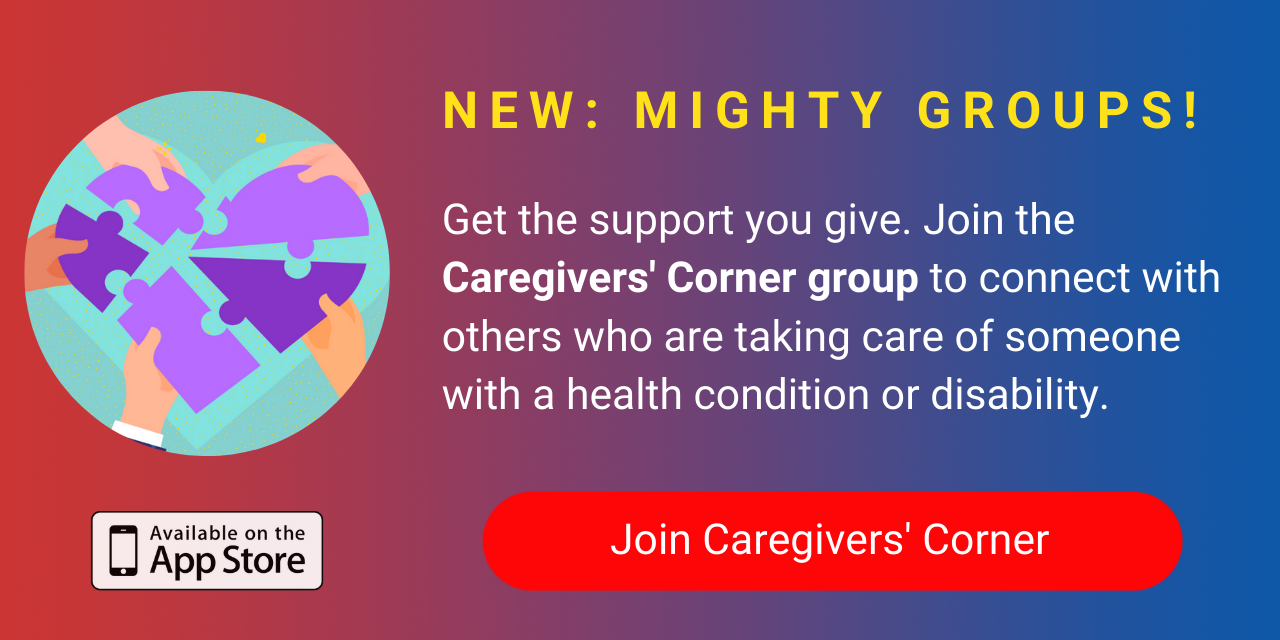Knowing how to show up for your loved ones who are dealing with chronic health conditions can be challenging. It can leave you feeling helpless much of the time. No one likes to see the people they love in pain. Unfortunately, the lack of control you feel over the situation often leads to actions that do more harm than good.
My hope is that you’ll take these six action items to heart and use them to become better allies and advocates for your loved ones.
1. Practice active listening.
When your loved one who has a chronic disease is talking to you, listen to understand, don’t just listen to respond. You may think what you have to say is important, but what they have to say is more important.
You might be hearing them, but are you actually listening? When you haven’t experienced living with a chronic illness, it’s very difficult, if not nearly impossible to relate to the experience. In your reality, you get sick and eventually, you get better. Our reality is much different.
Not every illness can be cured. That’s why it’s chronic. Yes, we have good days with minimal symptoms. That doesn’t mean we’re cured or “getting better,” it simply means we’re having a good day. Exerting energy means something entirely different to us. I may be capable of doing a specific activity one day, and incapable of doing it another.
You don’t need to fully understand, but you do need to listen and respect what they’re telling you.
2. Research their condition(s).
It never ceases to warm my heart whenever someone in my support system takes the time to investigate my health conditions. It makes me feel less alone in this diagnostic journey. They don’t do it because they’re looking to “cure” me. They do it to help me go into my doctor’s appointments armed with more questions and information. They do it so they have a better understanding of what I’m experiencing.
When was the last time you sat down and researched your loved one’s chronic health conditions? Do you have a broad understanding of their condition(s)? If your spouse/partner/sibling/parent/close friend or family member is dealing with a chronic illness and you know little to nothing about it, but claim to care deeply about that person, you may want to examine why you haven’t done more to learn about this very significant part of their life.
3. Offer to go with them to their appointments.
Having another person present during doctors’ appointments can be incredibly helpful, especially for those of us dealing with copious amounts of brain fog. We, as the patients, do our best to go into our appointments armed with questions and lists of our symptoms and needs, but often we still leave feeling like we’re missing something and aren’t being supported enough. This is where you can step in and help.
Your loved one might not want you to go with them, but it’s worth it to offer. It’s easy for those of us with chronic health conditions to feel like a burden. I’d venture to say many of us feel that way a lot. We know how frustrating it can be for the people who love us to see us suffering and not be able to “fix” it. But, we don’t need you to fix it. We need your support while we hold our doctors accountable. So, why not offer to come with us to our appointments?
Your presence means you might hear the doctor say something we miss. You might think of a question we forget to ask. You can take notes so we can simply be present and listen/talk to our doctor. The only stipulation is, don’t center yourself. Being at the appointment isn’t about you. You’re there to support your loved one. It’s not the time for you to push your own agenda. You’re there for the assist.
4. Stop trying to “fix” them.
I can’t stress this enough. Please stop trying to fix us. Please stop treating us like we’re broken. Stop treating us like we’re doing something wrong and you’re doing something right. I know it hurts you to see someone you love suffering. I know you want to help. But much of the time, that help comes off as little more than victim-blaming.
What you need to understand is that we are working with our doctors to find the best ways to treat our chronic illnesses. I know the internet and social media make you feel like an expert in all things, but you’re not. Doctors and scientists can still be trusted.
Finding a proper diagnosis can take years. Finding the right treatment plans can take years and often changes over time as our bodies adjust to things. This is a constant and ever-evolving process. We are still going to have flare-ups even when we’ve found treatments that work. This is the reality of chronic disease.
You cannot look at people with the same chronic disease and assume what works for one person is going to work for another. Autoimmune diseases are complex. They are still wildly misunderstood. What works for one person doesn’t work for another. Just because your co-worker’s niece’s best friend with lupus found herself in remission because she did a, b and c doesn’t mean that’s going to work for your loved one. That means if your loved one isn’t on board with your “plan,” you don’t get to be mad at them and blame them for “still being sick.”
5. Have compassion but don’t over-identify.
It can be challenging to empathize with someone who has a chronic disease when you don’t have one or have never experienced any type of prolonged illness. You don’t necessarily need to be able to empathize. What you need to have is compassion.
According to self-compassion author Kristen Neff, compassion is meeting suffering with kindness — part empathy and part wishing to treat someone as kindly as you’d like to be treated.
What you don’t need to do is start over-identifying. When we over-identify, we start taking on the other person’s feelings or emotions and losing our own perspective. We blur the boundary lines and start mixing our experience with theirs.
Your experiences are not your loved one’s experiences. If you’ve started practicing active listening, you’re already starting off on the right foot. Next, you need to realize that what your loved one chooses doesn’t have to be what you would choose.
Additionally, things like brain fog and fatigue for people with chronic illness are not the same as brain fog and fatigue for an average person. Comparing your experience with theirs isn’t helpful. “Oh yeah, I totally understand what you mean! I’m so exhausted today too!” No. You don’t understand.
I don’t say this because it’s a competition. It’s not. But telling someone with chronic fatigue you understand how they feel because you’ve gotten a couple of bad nights of sleep doesn’t make us feel seen or understood. Quite the opposite, actually.
Telling someone with chronic headaches you understand how they feel because you had a headache for two days once — not helpful. What is helpful is to say something like, “I can’t imagine what it would feel like to have a headache for so many days in a row. How can I help?” or, if you aren’t offering any kind of help but just want them to know you’re there, end your statement with, “I’m thinking about you” or “Sending you so much love” or whatever feels authentic to you.
6. Ask them what they need.
If you aren’t sure how to show up for your loved one, ask them. If they’re having a particularly hard time and you aren’t sure what to do, ask. “How can I best support you right now?” If they’re venting, ask them, “Do you just need to vent right now or are we on the hunt for a solution?” Whatever they tell you, honor it.
Communication is key. Dealing with chronic health conditions can be tough. They play a role in every part of our lives, but they don’t have to control everything, especially our relationships, if everyone is willing to communicate openly with one another.
You cannot control your loved one’s chronic disease. You cannot control their treatment. You need to trust they are doing everything they can to care for themselves, and if they’re truly not, you need to sit down with them privately and express your concern. Don’t shame them. Don’t blame them. Understand they are dealing with something you can’t fully understand and offer to walk with them through it.
Getty image by Seb_ra.


